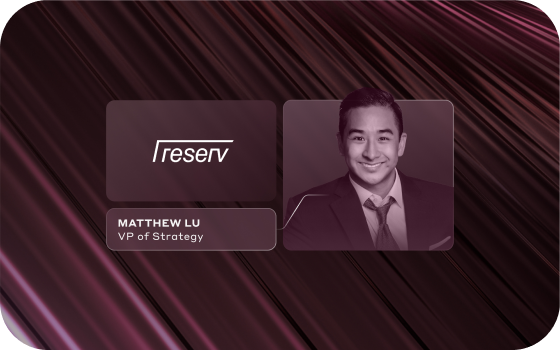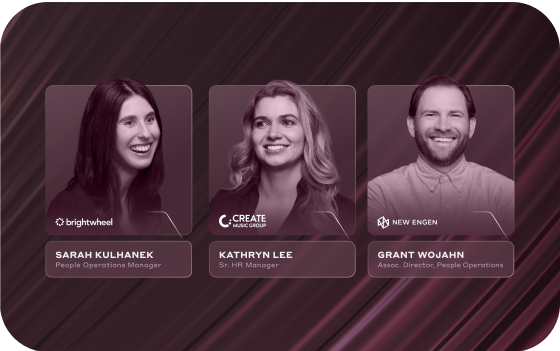An H-1B visa is a nonimmigrant visa that allows US companies to hire foreign workers in specialty occupations that require theoretical or technical expertise, such as IT, engineering, or medicine. It is typically issued for an initial period of three years and can be extended.
Who qualifies for the H-1B program?
There are four general requirements for eligibility for the American H-1B visa program:
- Applicants must have a job offer from a U.S. employer. It’s best if they can prove their job offer with a written employment contract. The US employer should also be able to demonstrate that they need the foreign worker’s skills for the role.
- The offer must be for a specialty occupation. H-1B visas are only for specialty occupations, which must meet one of the following criteria to qualify:
- The normal minimum requirement is a bachelor’s degree, master’s degree, or higher
- The degree requirement is typical for the industry in similar job roles across different organizations
- The role is so unique and complex that it can only be performed by an individual who meets the minimum requirements
- The duties and responsibilities of the role are particularly specialized and require knowledge obtained while getting a degree, higher education, or other training as required
- Applicants must meet the minimum requirements for the specialty occupation role they’ve been offered. Depending on the position, that might mean that they:
- Have a bachelor’s degree or higher from an accredited university or college in the US
- Have a degree equivalent to a bachelor’s degree or higher from an accredited university or college in another country
- Have valid certification, license, or registration to offer services or complete duties required by the specialty occupation
- Have specialized training or equivalent job experience equivalent to a degree or other minimum required qualifications for the specialty occupation
- A valid relationship must exist between the applicant and their employer. A foreign national can’t apply for an H-1B visa based on an open job listing. They also can’t be self-employed or basing their visa application on a contract position. The U.S. Citizenship and Immigration Services (USCIS) assesses relationships between visa applicants and employers (also called petitioners). Some of the factors they look at include:
- Whether the petitioner can hire, fire, and pay the applicant
- Whether the petitioner assess the applicant’s work
- Whether the petitioner provides the applicant with benefits
- Whether the petitioner appears on the applicant’s tax information
- Whether the petitioner has control over when and how the applicant completes their job duties
What is the H-1B visa cap?
The H-1B cap refers to the annual limit on the number of H-1B visas issued by USCIS. The current cap is set at 65,000 visas per year, with an additional 20,000 visas allocated to foreign nationals with a master’s degree or higher. Most H-1B petitions are “cap-subject,” meaning they count toward the annual visa cap. Certain H-1B workers, including those hired by universities and nonprofit organizations, are considered “cap-exempt,” meaning they don’t count toward the annual visa cap and can apply for an H-1B visa even if the annual cap for the year has already been met.
Can people without degrees qualify for an H-1B visa?
Although most H-1B applicants must possess at least a bachelor’s degree, individuals without a degree can still qualify if they have the equivalent of a degree through a combination of education, specialized or practical training, and relevant work experience. The USCIS typically requires proof of specialized experience before granting exemptions to the degree requirement.
Pros and cons of the H-1B visa
Pros of the H-1B visa program
Cons of the H-1B visa program
Access to skilled foreign talent: Employers can hire highly qualified professionals in fields where there is a shortage of US workers
Annual cap: H-1B applications are subject to an annual lottery system, and many applicants miss out due to the H-1B cap
Job flexibility: H-1B visa holders can change employers during their visa tenure, provided the new employer files a petition
Costly and time-consuming: Sponsoring an H-1B employee requires significant legal and filing fees, including costs related to Department of Labor certification and USCIS filing fees
Worker protections: The US Department of Labor (DOL) mandates that employers pay H-1B employees the prevailing wage and maintain minimum standards for working conditions, which protects not just visa holders, but all employees of H-1B petitioners
Risk of deportation: If an H-1B employee is laid off or terminated, they have a limited period to find a new job, or they must leave the US
How to apply for an H-1B visa
- The H-1B application process starts with the employer (also called the petitioner). Their first step is to file a Labor Condition Application (LCA) with the DOL to demonstrate that hiring a foreign worker will not negatively impact US employees.
- Once the LCA is approved, the employer can move on to the next step in the visa application process: filing a Form I-129 Petition for a Nonimmigrant Worker. Form I-129 should be submitted to the USCIS along with the approved LCA, any visa filing fees, and all required supporting documents, which can include proof of the applicant’s education and employment.
- If the Form I-129 is approved, the next steps are the visa applicant’s job. They need to schedule an interview at the nearest US embassy or consulate, either in their home country, or in the US if they’re already in the country on another visa category. If applying from outside the US, the applicant will need to complete Form DS-160.
- Once the interview is scheduled, the visa applicant will need to gather and bring their supporting documents, including:
- A valid passport
- Confirmation of their completed Form DS-160
- A copy of the approved Form I-129
- Receipts showing all visa application fees have been paid
- A passport-sized photo that meets U.S. Department of State (DOS) guidelines
- After the interview, if the visa is approved, the applicant can enter the US and start work once they receive it. If they’re already in the US on another visa, they can’t start work until their status is changed to H-1B and they receive the updated employment authorization.
How to apply for the H-1B lottery
The majority of H-1B visa applications are cap-subject, meaning they have to go through the annual lottery system.
To apply for the H-1B lottery, petitioners must first submit an electronic registration for their potential employee during the designated registration period, which typically occurs about a month before USCIS begins accepting cap-subject applications for that fiscal year.
Tip: Dates for the registration period and application period can be found on the USCIS website each year. It’s important to check, because the dates vary from year to year, and sometimes include grace periods, but often don’t.
If selected for the lottery, the employer has until the application deadline to submit the full H-1B application and supporting documents. The number of applications accepted is capped each year. Selections are random, so early preparation is critical.
Is the H-1B visa a path to permanent residency or citizenship?
While the H-1B visa is classified as a nonimmigrant status, it can be a stepping stone toward permanent residency. Many H-1B holders seek a change of status by applying for an employment-based green card.
Additionally, H-1B employment allows visa holders to live and work in the US temporarily, but the visa can be renewed for up to six years, providing ample time to pursue another type of visa or a green card. Although the H-1B visa does not directly lead to citizenship, those who achieve permanent residency can later apply for US citizenship if they meet the necessary requirements.
Frequently asked questions about the H-1B visa
Still have questions about the H-1B visa? Learn more in the FAQs below.
How much does an H-1B visa cost?
The total cost of an H-1B visa varies depending on several factors, including the type of employer and location. Employers are responsible for paying the filing fee, but there can be other fees, including a visa issuance fee that varies depending on the applicant’s country of origin. These are also sometimes called reciprocity fees, since they are charged to citizens of countries that charge fees to US citizens who apply for certain types of visas.
For nonprofit organizations, some fees may be waived or reduced.
How long does it take to get an H-1B visa?
The processing times for an H-1B visa can vary depending on the service center handling the application and whether the employer opts for premium processing, which speeds up the processing time for an extra fee. Regular H-1B applications can take up to several months.
Can you change employers on an H-1B visa?
Yes. Visa holders can change employers without losing their H-1B status. However, the new employer must file a Form I-129 with USCIS to transfer the visa. The worker can start their new job once the transfer petition is filed, even if it hasn't been fully approved yet.
Can H-1B visa holders bring their family to the US with them?
Yes. H-1B visa holders can bring their dependents—spouses and unmarried children under the age of 21—to the US under the H-4 visa category. H-4 visa holders can live and study in the US, and in some cases, spouses of H-1B holders may be eligible to apply for work authorization.
Rippling and its affiliates do not provide tax, legal, or accounting advice. This material has been prepared for informational purposes only, and is not intended to provide, and should not be relied on for, tax, legal, or accounting advice. You should consult your own tax, legal, and accounting advisors before engaging in any related activities or transactions.
















































































